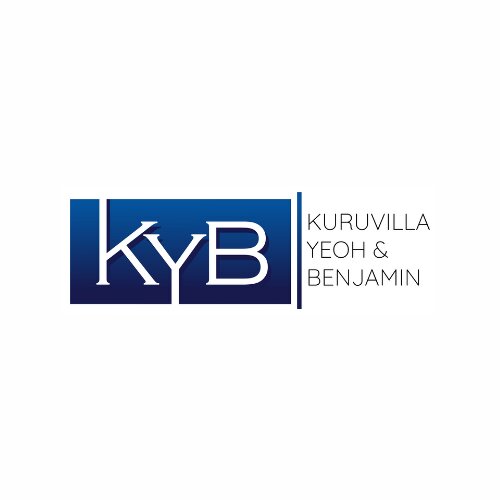Best Business Lawyers in Malaysia
Share your needs with us, get contacted by law firms.
Free. Takes 2 min.
Or refine your search by selecting a city:
List of the best lawyers in Malaysia

About Business Law in Malaysia
Malaysia is a rapidly developing economy with a robust legal framework for businesses. The business ecosystem is supported by well-defined laws and regulations that govern various aspects such as company formation, registrations, contracts, taxation, and labor laws. Malaysia is known for its investor-friendly environment and is considered one of the most attractive destinations for businesses in Southeast Asia due to its strategic location, skilled workforce, and developed infrastructure.
Why You May Need a Lawyer
There are numerous reasons why individuals and businesses may require legal consultation in Malaysia. Some common scenarios include:
- Starting a new business venture and needing assistance with business entity selection and registration.
- Drafting, reviewing, and negotiating business contracts and agreements.
- Handling disputes with partners, suppliers, or clients.
- Navigating regulatory compliance regarding taxation, employment, and environmental laws.
- Mergers and acquisitions or any major restructuring.
- Intellectual property protection.
Local Laws Overview
Business law in Malaysia is influenced by various local laws and regulations, including:
- Companies Act 2016: This is the principal legislation that governs company formation and the relationship among stakeholders within a business entity.
- Contract Act 1950: This act governs the formation and enforcement of contracts in Malaysia.
- Employment Act 1955: Focuses on the rights and obligations of employers and employees, setting minimum requirements for labor conditions.
- Income Tax Act 1967: Provides the framework for taxation of companies and individuals.
- Competition Act 2010: Aims to promote economic development by promoting and protecting the process of competition.
- Intellectual Property Law: Encompasses laws relating to trademarks, patents, and copyright, ensuring protection of intellectual property rights.
Frequently Asked Questions
1. What is the process for registering a business in Malaysia?
To register a business in Malaysia, you must first select the type of business entity, such as a sole proprietorship, partnership, or private limited company. The registration process involves submitting the necessary documents to the Companies Commission of Malaysia (CCM) and obtaining any required licenses or permits.
2. Do I need a local partner to set up a business in Malaysia?
Depending on the type of business you are setting up, there may be a requirement to have a local partner, especially in restricted industries. However, many sectors allow full foreign ownership.
3. How do I protect my intellectual property in Malaysia?
To protect intellectual property in Malaysia, businesses can register trademarks, patents, and copyrights with the Intellectual Property Corporation of Malaysia (MyIPO).
4. What are the common business entities in Malaysia?
The common business entities in Malaysia include sole proprietorships, partnerships, private limited companies (Sendirian Berhad), and public limited companies (Berhad).
5. What are the key employment laws in Malaysia?
The key legislation governing employment in Malaysia includes the Employment Act 1955, Industrial Relations Act 1967, and Occupational Safety and Health Act 1994.
6. Are there incentives for foreign investors in Malaysia?
Yes, Malaysia offers various incentives for foreign investors, including tax incentives, grants, and exemptions, particularly in sectors considered crucial for economic growth, like manufacturing and technology.
7. Can business contracts be enforced in Malaysia?
Yes, contracts can be enforced in Malaysia as long as they meet the requirements laid out in the Contracts Act 1950, which includes a valid offer, acceptance, consideration, and lawful purpose.
8. What is the corporate tax rate in Malaysia?
The corporate tax rate in Malaysia is generally 24%. However, small and medium enterprises may benefit from a lower rate for the first RM 600,000 of chargeable income.
9. Is English widely used in legal and business transactions in Malaysia?
Yes, English is commonly used in business and legal transactions in Malaysia, alongside the official language, Bahasa Malaysia.
10. How can I resolve business disputes in Malaysia?
Disputes can be resolved through negotiation, mediation, arbitration, or litigation in Malaysian courts. The choice depends on the nature of the dispute and the terms of the contract.
Additional Resources
For further assistance, you can consult the following resources:
- Companies Commission of Malaysia (CCM): For business registration and related inquiries.
- Ministry of International Trade and Industry (MITI): For information on trade policies and incentives.
- Malaysia External Trade Development Corporation (MATRADE): For assistance with export activities.
- Intellectual Property Corporation of Malaysia (MyIPO): For intellectual property registration and information.
- Malaysian Investment Development Authority (MIDA): For investment opportunities and incentives.
Next Steps
If you find yourself in need of legal assistance for your business in Malaysia, consider taking the following steps:
- Identify the specific legal issue or requirement you are facing.
- Research and select a competent lawyer or legal firm specializing in Malaysian business law.
- Schedule a consultation to discuss your needs and potential solutions.
- Gather necessary documentation and information to provide to your lawyer.
- Follow the advice and guidance provided by your legal counsel to address your business needs efficiently.
Lawzana helps you find the best lawyers and law firms in Malaysia through a curated and pre-screened list of qualified legal professionals. Our platform offers rankings and detailed profiles of attorneys and law firms, allowing you to compare based on practice areas, including Business, experience, and client feedback.
Each profile includes a description of the firm's areas of practice, client reviews, team members and partners, year of establishment, spoken languages, office locations, contact information, social media presence, and any published articles or resources. Most firms on our platform speak English and are experienced in both local and international legal matters.
Get a quote from top-rated law firms in Malaysia — quickly, securely, and without unnecessary hassle.
Disclaimer:
The information provided on this page is for general informational purposes only and does not constitute legal advice. While we strive to ensure the accuracy and relevance of the content, legal information may change over time, and interpretations of the law can vary. You should always consult with a qualified legal professional for advice specific to your situation.
We disclaim all liability for actions taken or not taken based on the content of this page. If you believe any information is incorrect or outdated, please contact us, and we will review and update it where appropriate.
Browse business law firms by service in Malaysia
Malaysia Attorneys in related practice areas.
Browse business law firms by city in Malaysia
Refine your search by selecting a city.















